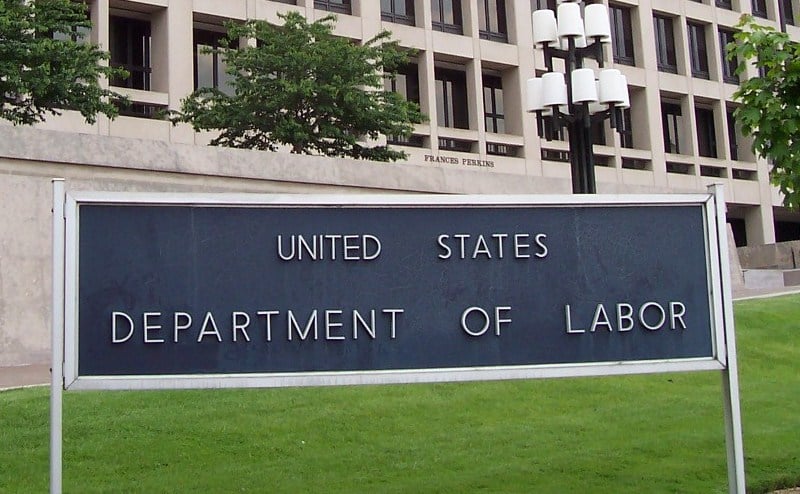Two constants dominate most discussions of how a multiyear recovery from terrible unemployment would need to progress. The first is that an historically large number of people who are currently out of jobs have been out of those jobs, on average, much longer than in the past. The other is that some of the most disenfranchised parts of the workforce continue to carry much of the load of the lack of a strong employment recovery. Source: Ed Brown, via Wikimedia Commons
Source: Ed Brown, via Wikimedia Commons
Without government interventions, these trends should continue. In a period of federal government expense cuts, that will not happen. And the government may have no financial incentive to press for a change.
The National Unemployment Law Project (NELP) issued a report about the extent of the disaster among those who have the hardest time finding work. Among its conclusions:
An unprecedented four in ten jobless workers — nearly five million people — have been out of work for 27 weeks or longer, pushing the average duration of unemployment up to 37 weeks, nearly 16 weeks longer than during the worst of the 1980s downturn.
African Americans, Hispanics, women, people without college degrees and older people are likely to have the most difficult time finding new work.
The argument for why a solution is important to the economy is difficult to defend. It assumes that people out of work would pay more taxes if they were employed. That is certainly true. Whether that would offset the government costs to set programs to reemploy these people is not entirely supported. Part of NELP’s argument for job creation is:
Our economy cannot afford to lose valuable productive capacity and tax revenue associated with good jobs by allowing millions of today’s long-term unemployed workers to become tomorrow’s disadvantaged workers.
However, the organization also admits that many of the jobs that have been created, and may be in the future, are at lower wages than in the past. The tax base of people employed at the low end of the economy is very modest. Government programs that include tax credits to businesses and creation of infrastructure are costly.
Congress likely will do nothing of substance to help job creation, because the trend to austerity continues to accelerate. Even, if the federal government did offer tens of billions of dollars to help people who have not had work for months, or even years, the tax yield and other benefits could be too small to drive revenue to lower the deficit.
Sponsored: Want to Retire Early? Start Here
Want retirement to come a few years earlier than you’d planned? Orare you ready to retire now, but want an extra set of eyes on your finances?
Now you can speak with up to 3 financial experts in your area for FREE. By simply clicking here you can begin to match with financial professionals who can help you build your plan to retire early. And the best part? The first conversation with them is free.
Click here to match with up to 3 financial pros who would be excited to help you make financial decisions.
Thank you for reading! Have some feedback for us?
Contact the 24/7 Wall St. editorial team.



